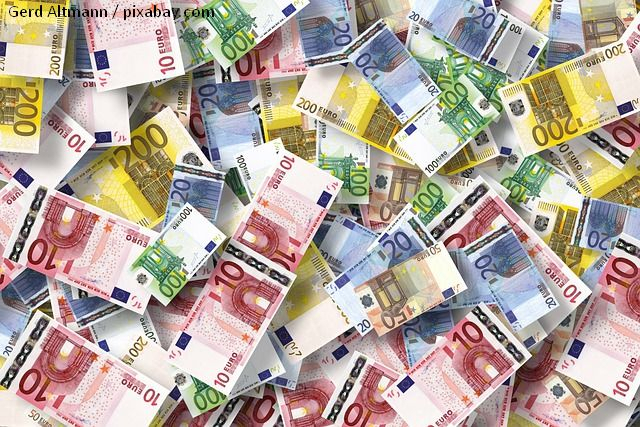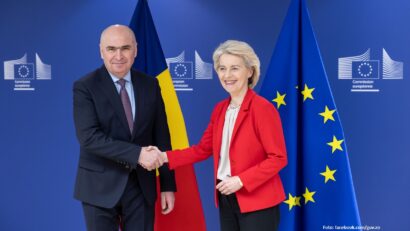Decisions on European money
Romanias government has approved the emergency decree for applying the National Recovery and Resilience Plan.

Leyla Cheamil, 23.12.2021, 14:00
The European money is waiting to be used, after the Romanian Government has approved the emergency decree allowing access to a loan worth almost 15 billion Euros granted by the European Commission under the Recovery and Resilience Mechanism. More than 29 billion Euros, of which over 14 billion represent a grant and about 15 billion a loan, will be made available to Romania through the National Recovery and Resilience Plan. During his recent visit to Brussels, the Prime Minister Nicolae Ciucă discussed with European officials about how this national plan, supported by European funds, will become a reality. Nicolae Ciucă has announced in Brussels that the government will soon create a structure to monitor, coordinate and verify the way in which this European instrument will be used.
According to the Finance Ministry, the loan from the European Commission will be used to achieve three major goals. To finance the reforms provided in the National Recovery Plan, to cover the state budget deficit and to refinance the government public debt. The money will be transferred in 10 installments, until December 31, 2026, as the objectives that Romania has assumed are gradually fulfilled and the investments associated with the loan are made. Each money transfer, including the pre-financing, shall be granted on favorable terms at the cost level of the European Commission. The loan will be paid back over the next 30 years, in equal installments, with a 10-year grace period. “I want Romanians to know what happens with the loans we take; I believe that they have this right, given that it’s them who will support the loan reimbursement. I will do my best to ensure that every Euro borrowed is put to work and contributes to the development of the country and the improvement of peoples lives “, the Finance Minister, Adrian Câciu underlined.
On the other hand, the European Commission has proposed three new taxes in the Community bloc. Over the next few decades, they are going to allow for the reimbursement of funds collected by the EU to finance the NextGenerationEU grant component, the Unions economic recovery package meant to support Member States affected by the coronavirus pandemic. The first tax is based on revenue from trading emission certificates. The second tax is based on the resources generated by the mechanism proposed by the EU to adjust carbon dioxide emissions at the border, the so called CBAM — Carbon Border Adjustment Mechanism. The Commission proposes the allocation of 75% of the revenues generated by this border adjustment mechanism to the EU budget. The third tax is based on the share of residual profits of multinationals that will be reallocated to EU Member States under the recent OECD agreement on reallocating taxing rights. In the period 2026-2030, it is estimated that these new sources of revenue will generate a total of up to 17 billion Euros annually for the EU budget. (LS)






























